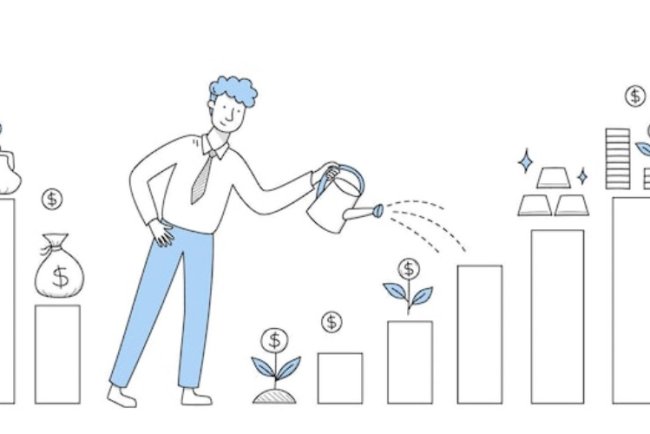EU Launches Action Plan To Decarbonize Steel Industry
EU launches Action Plan to decarbonize steel and metals industry, focusing on clean energy, innovation, and competitiveness.

The European Commission has set off a decisive push for the steel and metals industry by announcing the Action Plan on Steel and Metals, an extensive initiative to increase the industry's competitiveness as it ramps up decarbonization. Announced on Wednesday, the plan reveals an array of approaches to remedy the difficulties experienced by the sector, ranging from exorbitant energy prices to competition on a global scale, to the imperative need for environmentally sustainable change.
Europe's steel and metals industry has been a pillar of the continent's economy, generating employment and propelling industrial development for decades. But it is also among the EU's biggest industrial emitters of greenhouse gases, so transforming it is essential to meet the bloc's climate ambitions. Acknowledging this, the new Action Plan establishes six key pillars to drive the transition of the industry: ensuring clean and affordable energy, avoiding carbon leakage, enhancing industrial capacities, advancing circularity, supporting industrial jobs, and de-risking investment initiatives via lead markets and public assistance.
This initiative follows the European Commission’s previous action plan focused on the automotive sector, forming part of the broader “Competitiveness Compass” roadmap aimed at reinforcing Europe’s industrial productivity and global standing. The plan encompasses introducing sector-specific strategies for priority energy-intensive sectors in 2025, alongside legislative initiatives such as the proposed "Industrial Decarbonisation Accelerator Act." The act is likely to streamline the permitting procedure for clean energy in high-emission sectors, while an examination of the EU's Carbon Border Adjustment Mechanism (CBAM) is also underway to help provide a level playing field.
An important aspect of the Action Plan is providing access to clean energy sources. The Commission is promoting the higher application of Power Purchase Agreements (PPAs), which allow industries to have long-term renewable energy supply contracts. It is also promoting the reduction of network tariffs among member states to help offset the volatility of electricity prices, a concern of particular interest for energy-intensive producers. Quicker grid connection and additional backing for renewable and low-carbon hydrogen are also top priorities, with policymakers identifying hydrogen as an essential technology to cut emissions from steel manufacturing.
Funding is also an essential part of the decarbonization process, and the European Commission has mapped out ambitious financing projects. Of most significance is the Industrial Decarbonisation Bank, initially proposed in February under the Clean Industrial Deal. This bank will raise €100 billion of scale-up capital, with a €1 billion pilot auction to start in 2025 to fund projects designed to electrify and decarbonize critical industrial processes. This capital support is meant to de-risk investing in clean technologies, inspiring companies to implement new solutions without fear of economic losses.
Another key priority of the plan is carbon leakage prevention, the process by which firms relocate production to countries with less stringent environmental standards in order to avoid stricter EU rules. To prevent this, the Commission will propose legislation later this year to broaden the scope of CBAM, the EU's carbon tariff on imported goods. The new measures would extend to more steel and aluminum-based products so that imported products are held to the same environmental requirements as those manufactured in the bloc. More stringent anti-circumvention regulations are also on the table to stop firms from evading CBAM via indirect trade channels.
Circularity in the metals sector is another major area of intervention. The Action Plan also suggests establishing quantitative targets for recycled steel and aluminum use in strategic industrial sectors. The Commission is also considering mandating that specific products, like building materials and electronics, include a minimum recycled content percentage. In a bid to guarantee an adequate supply of raw materials, possible restrictions on metal scrap exportation are being considered.
The proposal has been strongly supported by European Commission President Ursula von der Leyen, who emphasized the need to keep steel production in Europe. "The steel sector has long been a key driver of European prosperity," she stated. "Clean steel for the next generation should thus continue to be produced in Europe. That means we need to support our steelmakers who are confronted with strong headwinds on the world market.". To ensure they stay competitive, we need to cut energy prices and enable them to bring new, low-carbon technologies to the market. With our Action Plan today, we are providing tangible solutions to a successful European steel industry.
By tackling the structural issues of the steel and metals industry, the European Commission's new Action Plan aims to make Europe the world leader in clean industrial production. The blend of budgetary aid, policy change, and technology drives is meant to build a stronger, more competitive, and cleaner industry-one consistent with the EU's overall ambitions on climate policy while creating employment and economic output. Success with this endeavor is contingent upon actions taken in synchrony among governments, corporations, and politicians but, if correctly executed, represents a possible sea change in European industrial destiny.
What's Your Reaction?

















